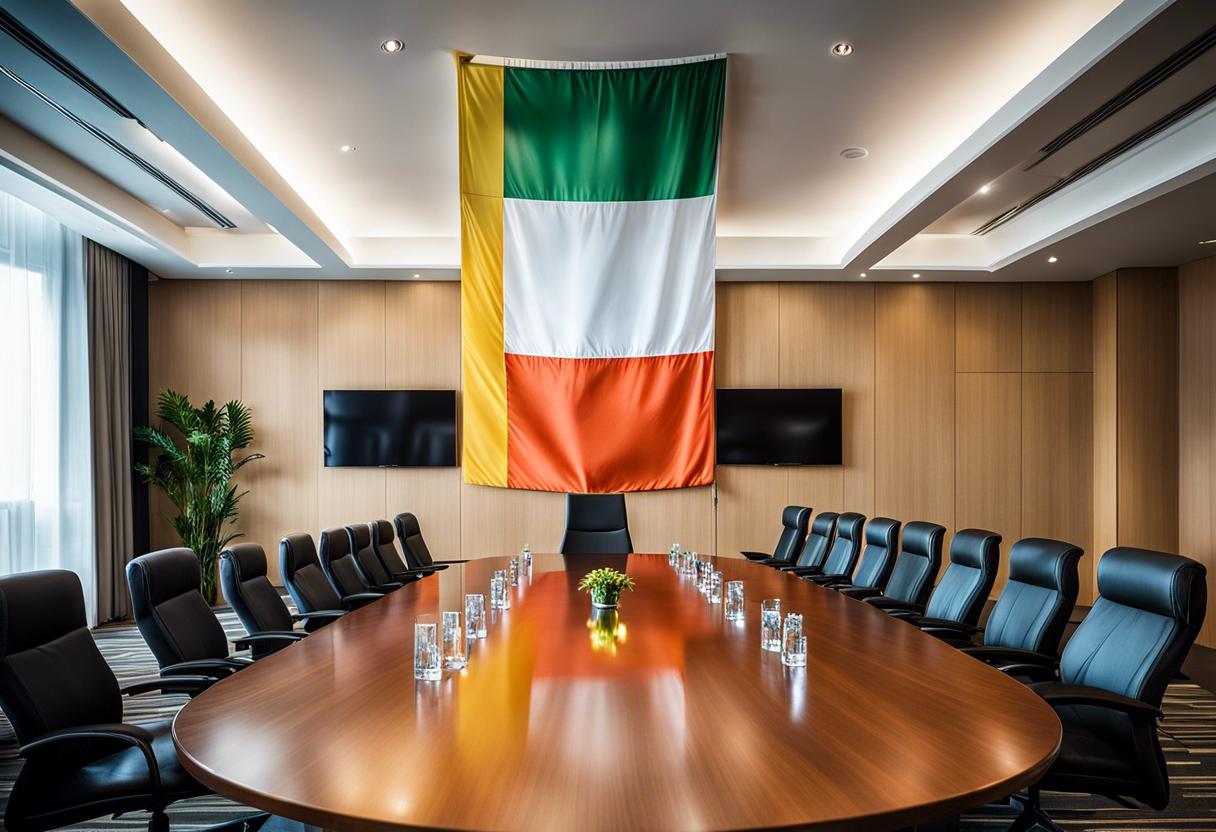Simon Harris, the Taoiseach, is set to convene with President Volodymyr Zelenskiy and additional international leaders this Saturday at a two-day Switzerland conference. Their aim is to initiate peace efforts for the long-standing conflict in Ukraine.
The discussions, taking place in the highly secured Bürgenstock resort located on a mountainside outside Lucerne, will have representation from 92 nations, including 57 world leaders. Despite the lack of Russia and China’s presence, Swiss hosts assert that it provides a platform to reaffirm support for Ukraine and facilitate discussions on nuclear safety, food security, and concerns related to the humanitarian crisis brought about by the war, now in its 843rd day.
Harris has earlier criticised Russia’s “illegal … brutal and relentless aggression”, accusing it of committing countless human rights violations – including child abduction and murder. He stated that Russia will be held accountable and the international community must come to a consensus on the core principles which will guide future peace processes, especially as Russia continues to display unceasing aggression and shows little intention towards peacekeeping efforts.
At the conference, Harris plans to express Ireland’s support for international law, respect for Ukraine’s sovereignty, territorial integrity and political self-determination. He will also take part in a separate session on the human toll of warfare, specifically on strategies to repatriate all unlawfully displaced Ukrainian children.
President Zelenskiy stated on Twitter, expressing hope for productive partnerships with nations worldwide and working with them towards a shared objective of establishing sustainable and fair peace in Ukraine.
A preliminary copy of the final statement mentions the “Russian Federation’s aggression against Ukraine” and promotes future negotiations involving all parties based on the principles of respect for territorial integrity and sovereignty of all states as outlined in the UN charter. The document asserts that this will act as the basis for achieving sustained and equitable peace in Ukraine, however, alterations may occur before the conference concludes on Sunday.
Last Friday, Vladimir Putin, the Russian President, declared that Russia would conclude its war, provided Ukraine abandons all aspirations to join Nato and concedes four provinces Moscow lays claims to. Kyiv rejected these conditions, dismissing them as ‘manipulative’, ‘absurd,’ and akin to capitulation. Ukraine maintains that it will only approve of a peace agreement that acknowledges its post-Soviet 1991 borders, which includes the Crimean peninsula illegally seized by Russia.
Kamala Harris, the US vice-president, as well as the leaders of France, Germany, Italy, the UK, Poland, Canada, and Japan will be in attendance. Ministerial delegations from nations with more congenial ties to Russia, including Hungary, Slovakia, India, and Turkey will also be present.
Russia’s absence inspired China’s lack of attendance, causing it to question a peace conference’s value without all warring parties. This sparked a heated reaction from Mr Zelenskiy, who charged China with pressuring other nations to refrain from attending – an allegation Beijing rejects.
The final list of participants, released Friday evening, features many nations from the Global South, such as Chile, Colombia, Ecuador, Argentina, and Brazil.
For Ukraine, the attendance of Saudi foreign minister Faisal bin Farhan Al Saud is a positive development. This raises hopes that this meeting, arranged by Switzerland at Ukraine’s behest, may pave the way for a future forum hosted by Saudi Arabia, with Russia present.
Following an active week of diplomacy in western Europe, Mr Zelenskiy secured additional armament systems for his country, humanitarian assistance, and a €50 billion loan from G7 leaders. The loan’s interest payments will be covered by seized profits from Russian assets held in European banks, impounded after Russia’s invasion of Ukraine in February 2022.

